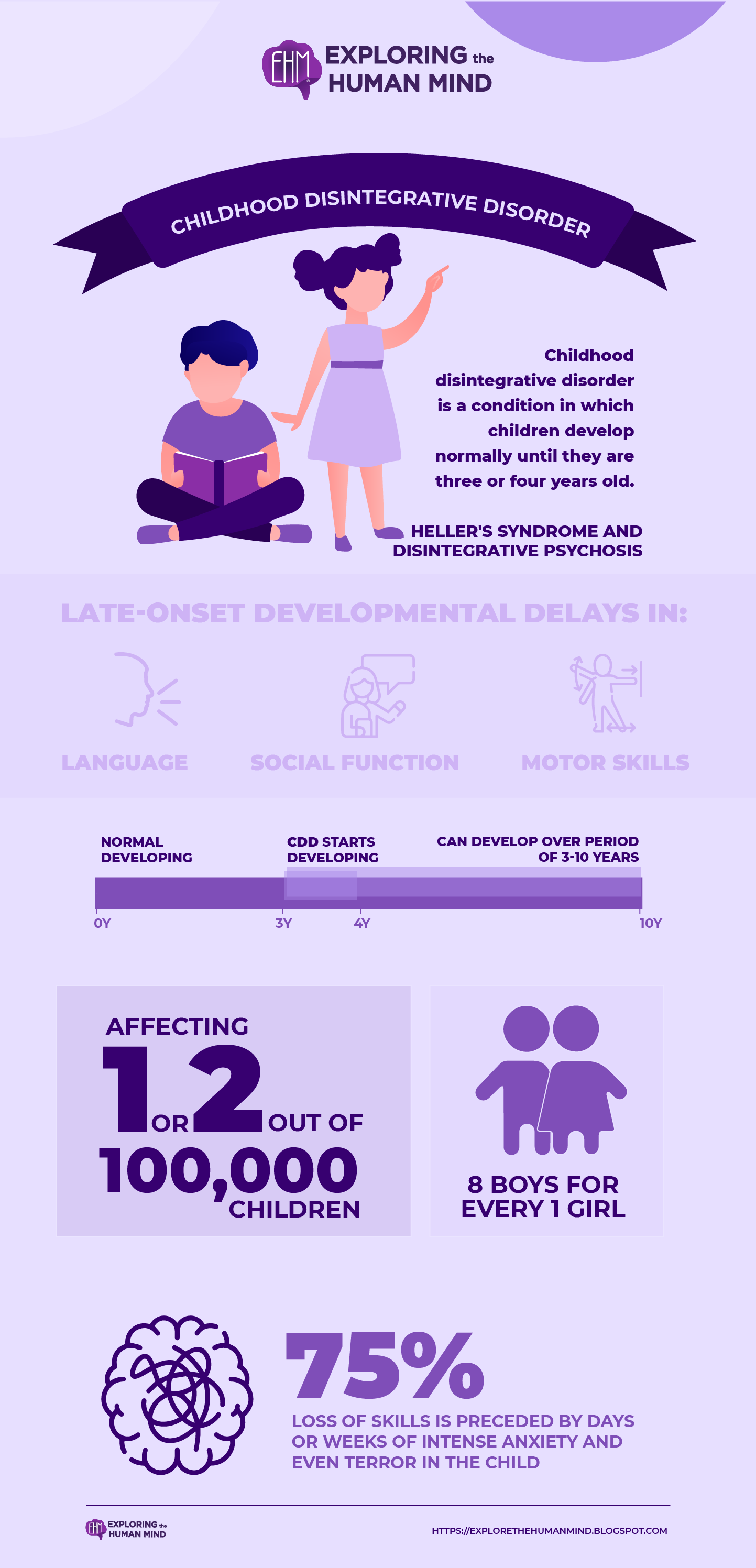Childhood disintegrative disorder CDD
Childhood disintegrative disorder is a condition in which children develop normally until they are three or four years old. Then, over time, they lose language, motor, social, and other previously learned skills.
It is uncommon, affecting 1 or 2 out of every 100,000 children. A child with CDD will experience deep, sharp reversals along multiple lines of development, including language, social skills, play skills, motor skills, cognition, and bladder or bowel control, after typically developing for two to ten years (the average is three or four).
It is a rare condition with a late onset (typically older than 3 years old) that causes developmental delays in:
- Motor skills
- Play skills
- Social function
- Language
- Social skills
- Bowel and bladder control
Its current cause (etiology) is also unknown.

vectors by Freepick; graphic design by Vadot
Facts
Children with CDD have at least two years of normal development in all areas, including language understanding, speech, muscle control, and social development. Following this period of normal development, the child begins to lose the skills he or she has learned. This loss typically occurs between the ages of three and four, but it can occur at any age up to ten. The prevalence of CDD is one in every 100,000 boys, with an estimated 8 boys for every 1 girl.
In approximately 75% of cases, this loss of skills is preceded by days or weeks of intense anxiety and even terror in the child: nightmares and waking nightmares, as well as bouts of confused, jumpy disturbance that resemble psychosis.
Reference:
What to Know About Different Types Communication Disorders. (2022). Verywell Mind. https://www.verywellmind.com/communication-disorder-types-5220602#toc-types-of-communication-disorders
Communication Disorders | Abnormal Psychology. (2013). Lumenlearning.com. https://courses.lumenlearning.com/wm-abnormalpsych/chapter/communication-disorders/#:~:text=unspecified%20communication%20disorder%20%E2%80%93%20This%20category,symptoms%20cause%20distress%20or%20impairment.






Comments
Post a Comment